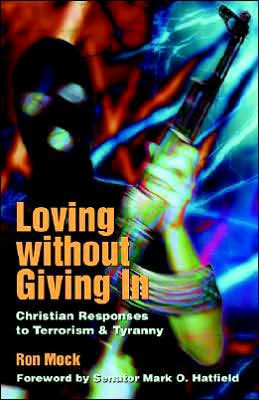I’m guilty of a form of idolatry. It is really rather insidious. It has a guise of being in keeping with the Kingdom but it ends up taking away my time that I should be doing following Christ into the world. I listen to a whole different set of priests. I read a different set of scripture. There are even temples and altars where, if I wanted to, I could go worship. Through this idolatry, I claim that I can change the world for the better, that if I just figure out the right way to think, the right people to follow, the right ways to act, then the world will be redeemed. I spend hours at this, literally at times.
I don’t think I’m the only one. Thousands and millions of people in our country follow this idol. It consumes them. It causes marital strife. It breaks up the fellowship of believers. It causes divisions and factions, both within the church and without. Hateful things are said in the name of this idol because, just like with any religion, there are different ways of viewing the same thing and sometimes things are up to interpretation.
This idol is actually global. There are people all over the world consumed by this form of worship. Depending upon what nation you live in, there are different ways in which it is practiced. But, essentially, it all comes down to the same thing.
What idol am I talking about? One word: politics.
Think about it. How many times have you been lambasted for voting a particular way, or listening to a particular commentator, or reading a particular online blog, or any number of things? How many times have you been criticized at not being a “good person” or, for that matter even, a “good Christian” just because you support a particular party, platform, or candidate? This idol knows no political party. Democrat Christians yell at Republican Christians and vice versa. Progressives attack Conservatives. Left and Right. Blue and Red. We have become obsessed in our churches with aligning ourselves with a particular expression of politics to the point where politics is preached from the pulpit, it’s published in our church newsletters, it’s documented in our church publications, and it’s spoken about in the fellowship time on Sunday morning. And, again, no side is guiltless.  I would not even say one particular side is any better or worse than another.
Please don’t get me wrong. I do believe that we have a responsibility to speak the gospel into our culture and that includes to speak the gospel to the people in our government. But when it becomes an all consuming passion of “I’m right, you’re wrong”, then it becomes an idol. We start categorizing each other by party. We start looking for ways of defending our position through Scripture and other teachings. It becomes a goal to prove that our way of looking at politics is somehow more Christian than another. We write letters to newspapers and Congressmen/women to try and convince them that our way is somehow more Christian than thier way and so on.
And the result? We look like a bunch of whining, argumentative, bigotted (both sides), unforgiving, petty, malicious, vicious, nasty people who will shoot down, knock down, run over, blast, insult, slander, and libel anyone who does not agree with us. And yes, Mennonites do this to. And Methodist. And Baptists. And Catholics. Need I go on?
Meanwhile, people go unfed. People go without sufficient clothing for the winter. People go without homes. People can’t afford to pay medical bills. People sit and cry in the dark because there is no one there to show them any semblance of love. People live in fear of their mothers, fathers, sisters, brothers, husbands, and wives. People live in the darkness of the depression because, to them, there is no hope. And we see this and we do our politics, claiming somehow that politics will solve these problems. We have plenty of food, LOTS of clothes, extra money to go on vacations, to movies, out to eat, etc. We spend our time watching football, baseball, soccor, playing video games.  And we do our politics because that will fix it all. Guess what? It won’t. And it hasn’t yet, neither here in the US or anywhere else in the world. And that goes for right, left, conservative, liberal, etc. One group says more government will fix these problems. One group says less government will fix these problems. One says more laws to regulate things. One says less laws. One says more enforcement of laws. One says less enforcement. Well, they are all wrong because there is only ONE who can fix it all.
My home blog is not about politics and there’s a reason for that. We are not supposed to be about politics. We are supposed to be “boots on the ground” people. The politics of Jesus time did not allow for people to do the work of the Kingdom. Nor did the politics of Paul’s experiences. Or the politics of anyone in the first century or so of the church. In fact, the politics of the world didn’t really become a factor in allowing the Kingdom to move until Constantine and then, instead of the politics assisting in the Kingdom, the politics took over the Kingdom. Then we just got a NEW set of politics that either you followed the specific church of Constantine or you were not in “the Kingdom”. So, for over 2000 years, politics has been more a hindrance and enemy of the church than a helper.
And here we are, still trying to do things using the world’s system of politics, laws, government, etc, to try and shoe-horn the Kingdom into the world.
So, I’m calling it what it is. It is an idol. We have put up an idol of the world system of government, politics, etc, that somehow that human system is going to usher in the new Kingdom. To make our government equivalent to the Kingdom is to repeat the mistakes of centuries past where human government, under the guise of being “The Kingdom”, due to the corrupting nature of power and the propensity for humans in power to give in to that corruption, perform attrocities like the Crusades, slavery in the US south, the Inquisition, the oppression of the Native American nations both in North and South America (go watch the move “The Mission” sometime to see how church and politics did “kingdom” work), and countless other oppressive, selfish, and evil practices, all done in the name of Christ and the Kingdom.
The Kingdom is already here, among us. It is in our grasp. We hold it in our hearts because the Spirit that comes from God molds us into it. We are the Kingdom. The world can be influenced by us and we can have a voice in the “politics”… but what should rule our lives is not the desire to make over the world systems in Kingdom image, but to live like citizens of the Kingdom no matter what world system we find ourselves in. All the martyrs of the past knew this in their hearts. They lived in the Kingdom no matter what the politics. Some died in the Kingdom because of the politics. Some died in the Kingdom because the politics professed to BE the Kingdom and killed them for it. The Kingdom is here. We should live like it. Move ahead. Be the Kingdom.
And how will the Kingdom fix it all? Because lives change. Hearts change. People get redeemed and they look around and they see what God sees and how they are supposed to act and live and be and move. Changed lives see hungry people and buy them a hamburger. Changed lives see a man with no shoes, begging for money in the city and buy him a pair of shoes. Changed lives see the homeless and offer them the extra room in their house. Changed lives see the people struggling to make ends meet while the bills pile up and they quietly pay off the bills and remove that stress. Changed lives climb into the darkness with the lonely and scared and depressed and sit with them in the dark, holding them and giving them the comfort that comes from presence and love. Changed lives speak into the violence and fear in the family, showing love to those who need love and intervening where necessary, even giving up their own safty.
And how do lives change? By the Spirit. And how do we get the Spirit? Through Jesus. And how does that happen? People speak, people give witness, people are out there showing what Jesus can do by their actions. All those changed lives doing things? That’s Jesus. When the changed lives do things, people see Jesus, people want to know about this Jesus that gave them hope. And the people with the changed lives share Jesus.
All the kingdoms of this world will pass away, even the “mighty” USA, but God’s Kingdom will continue. I prefer to try and live for the permanent Kingdom rather than the temporary. And for those of you who will criticize that I’m calling for quietism be assured that I will still have my Kingdom views influence what I do in the world of politics, but no more will politics become equal to the Kingdom. Instead, I strive for the goal, I press on, I desire the greater gifts of love, faith and hope. I allow my life to change and, as it changes, I get up, get out, and do what changed lives do. Go, into all the world, and make disciples.
The idol of politics is no more.







 I don’t know whether in the States you have noticed the debate about the Swiss people’s decision last Sunday (29th of November) to amend their constitution to forbid minarets. Here in Germany and the rest of Europe fascists and right-leaners are celebrating and want plebiscites on these issues as well(check out their posters!). Swiss politicians are shocked as no one would have anticipated such a result and are now checking if they can squirm out of it, by saying that basic liberties cannot be changed, not even by the will of the people. Analysis shows that the most votes for the ban came from the rural areas where there are almost no Muslims, and most votes against the ban came from the cities where there is a relatively high Muslim population, still not high. In all of Switzerland there are four mosques…
I don’t know whether in the States you have noticed the debate about the Swiss people’s decision last Sunday (29th of November) to amend their constitution to forbid minarets. Here in Germany and the rest of Europe fascists and right-leaners are celebrating and want plebiscites on these issues as well(check out their posters!). Swiss politicians are shocked as no one would have anticipated such a result and are now checking if they can squirm out of it, by saying that basic liberties cannot be changed, not even by the will of the people. Analysis shows that the most votes for the ban came from the rural areas where there are almost no Muslims, and most votes against the ban came from the cities where there is a relatively high Muslim population, still not high. In all of Switzerland there are four mosques…